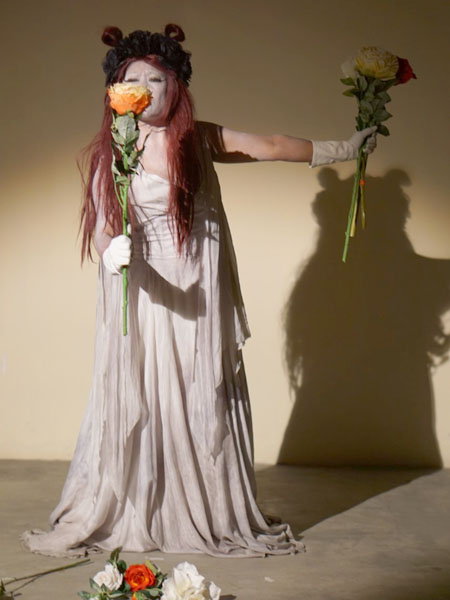GUWAHATI, Dec 11: The students of the Tata Institute of Social Sciences here in Assam observed the 70th International Human Rights Day by bringing together academicians, activists and theatre artists to discuss and showcase issues of sexual violence and impunity in Northeast India.
The event, hosted by NEThing in collaboration with Lal Poster, saw participants engaging in talks on physical and psychological dimensions of gender violence and impunity, and a 40-minute long theatre performance on the same theme.
The panel on the topic of ‘(En)gendering human rights: Violations and impunity’ was moderated by Dr Dolly Kikon, author and academician at the University of Melbourne. It brought together four women panellists with research experience in the realms of migration and displacement, sexuality and justice, caste and family, and the tea plantation industry and female labour force.
Parvin Sultana, currently working as an assistant professor at PB College in Gauripur, spoke about the displacement of women and their families in ‘char’ areas – river islands formed due to temporary silt deposits. She noted that for the people who live ‘illegally’ on these chars, there is always a fear of getting submerged.
“The stark difference between ‘char’ and town people is an issue of citizenship and the void it leaves between the two,” she said.
Activist and founder of NEthing, Banamallika Chaudhary, noted that a failure of governance, and not just social programmes, is the cause of all social disasters.
“Women from the most remote areas are not benefitting from capitalism and urban development, but are one of the most affected due to the capitalist system,” she said.
Juri Baruah M, a fiction writer and researcher in the field of gender, livelihood and environment, said, “Location is important to a woman’s identity. People struggling with the issue of citizenship in Assam say that the government imposes the borders on (them).”
Silsila Das, an activist, spoke on the taboo associated with sexuality, which in turn leads to the silencing of victims of sexual violence.
“In such a bleak scenario,” she said, “the experience of sexual violence for disabled women has made justice an even more distant dream.”
The headline event of the day was ‘Requiem for Dead Sisters’, a theatrical performance by Lapdiang Syiem and Rozumar J Samsara (Rosemary Kikon) presented on the stage. It gripped the audience and brought them to tears.
Cueing from the WHO’s definition on femicide, which says that femicide includes any killings of women or girls and not just intentional murder of the woman, the play focussed on issues of sexual violence and impunity in the Northeast.
The performance was conceptualized by trained physical theatre performer Rosemary, who is currently based in Ohio, and Shillong-based Lapdiang, over a period of two years from 2016. The play applied the ‘rotoh’ performance technique, combining Samsara’s arrangement of buto-ritual theatre storytelling and performance art orchestrated with tap dancing by Lapdiang.
The readings used in the projection were all accounts taken from newspapers about the murders and killings of women from the Northeast. Eight accounts, such as those of Thongjam Manorama’s brutal rape and murder by the Indian Army, armed insurgents carrying out a murder, suspecting a girl of being an informer, and a northeastern female migrant to Delhi being murdered in Munirka, were used. The play was narrated by Dr Dolly Kikon.




